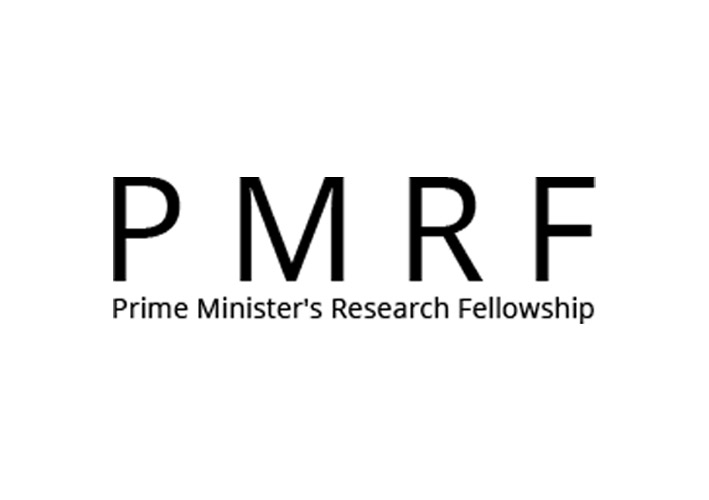Approved by Senate on 25th April 2022
Introduction
- Introduction
- Proposed Specialization Areas
- Program Structure
- Program Compulsory Courses
- Semester Wise Courses
- Courses for Semester 1st and 2nd
- Courses for Semester 3rd and 4th
- Courses for Semester 5th and 6th
- Courses for Semester 7th and 8th
Introduction
Vision of the Department of Chemistry is to achieve academic excellence and be acknowledged for high quality fundamental, sustainable, and translational research in chemical sciences and allied research areas that addresses continuously evolving current global issues on energy, food, water, and healthcare. Along this line, the department has initiated an engineering-linked four-year undergraduate Bachelor of Science (BS) in chemistry program with specialization in a focused area to attract and foster young and aspiring minds who are driven by curiosity and interested in cutting-edge research and technologies across the disciplines of chemical science. The central theme of this program is science-based engineering innovation and through this undergraduate programme in chemistry at IIT Jodhpur, we are striving to cross the barrier of traditional paths and planning to establish ourselves to become a leading department at the interplay of science and technology. This uniquely blended program is along the line of National Education Policy, as well as the Institute’s vision of holistic development of students.
This undergraduate program is designed to transmit fundamental knowledge in basic science and engineering during the first few semesters, which develops critical analytical thinking and forms the basis of diverse skill sets used by scientists and engineers to innovate, design, and develop technologies for the future. Students undergo comprehensive training in advanced concepts of chemistry for the next two years. The inclusion of a substantial component of courses from other science and engineering departments makes the program quite interdisciplinary in nature. The final year of the curriculum is designed towards specialization in a focused area. The flexibility of opting for different specializations is ingrained in formulating the structure and curriculum of the programme. During this year, the students get to experience the joys and rigors of original research currently being pursued and consider a variety of career paths through capability-linked specializations of their choice. In the specialization, emphasis is given to the emerging areas in Chemistry to meet societal and industrial needs, and ever-growing sustainability demands. The graduating students of this program shall be equipped with requisite skill-sets required to assume leadership positions in the different sectors of industry, further their career in higher studies, or embark on entrepreneurial ventures to address present day unmet challenges of the country.
Objectives of the program
The objectives of this program are:
- to equip new generation aspiring minds with engineering linked chemical science skill sets enabling them to opt for challenging career paths at various levels of academia and industry;
- to impart education towards understanding of the concepts of chemical science, basic engineering, and allied areas enabling the students to tackle societal problems through an interdisciplinary approach;
- to integrate analytical and computational abilities with experimental skills to create individuals competent in professional science practices;
- to facilitate and promote entry into research at an early stage through a flexible and borderless curriculum;
- to inculcate an attitude towards commitment to scientific ethics, leadership qualities, entrepreneurship, and professional development for the future generation;
- to instil the approach of collaborative research between academia and industry targeting sustainability.
Expected Graduate Attributes
Graduates of the program are expected to have following attributes:
- Strong understanding of fundamentals of science and engineering with emphasis on chemical science.
- A strong foundation in the analytical, experimental, and computational methods to study various aspects of chemical science.
- Foundations for critical thinking that are needed to broaden their careers in diverse cross-disciplines.
- Ability to acquire new knowledge, integrate in the existing paradigm, and innovate solutions as per the requirement.
- Capability to appreciate synthetic methods for the development of important chemical products such as pharmaceuticals, agrochemicals, paints, petrochemicals, food additives, plastics, etc.
- Ability to handle analytical, spectroscopic, microscopic and other instrumentation methods for interdisciplinary research areas.
- Use of computational tools to understand and analyse chemical and biophysical processes, molecular structures and advanced materials.
- Ability to comprehend, write, and present scientific articles and technical reports.
- Ability to engage in ethical and responsible practices while pursuing professional growth.
Learning Outcomes
- Acquire strong fundamentals in theoretical and practical aspects of organic, inorganic and physical chemistry as well as other branches of basic science and engineering.
- Apply the concepts of science and basic engineering to analyse and design complex novel materials, and molecular complexes having potential applications to society.
- Develop skills on hands-on wet chemistry, analytical, instrumentation, and experimental data handling to tackle scientific problems.
- Perform literature review and patent landscaping for innovative research.
- Develop communication skills by participating in classroom presentations, seminars and workshops on manuscript / patent writing / presentation skills.
- Value of team work and group discussion in problem solving, and time management to continue co-curricular activities without compromising academics.
- To understand professional ethics and social responsibilities.
New skill sets targeted
Industry-R&D-Academia collaboration on cutting edge science and technologies is the key for the growth of the country. Hence students need to delve into domains ranging from sustainable materials synthesis to molecular complex design, computational chemistry, organic synthesis for pharmaceuticals, agriculture
industries to industrial Catalysis that are critical to meet future needs. In the pursuit of novel materials, molecules and catalysts relevant for today’s Circular Chemistry (Recycle and Reuse, rather than take-make-dispose) that enables a circular economy requires comprehensive understanding of the specialization areas.
Proposed Specialization Areas
- Spectroscopy and Dynamics
- Computational Chemistry
- Catalysis & Synthesis
- Advanced Energy Materials
- Entrepreneurship
Program Structure
Credit Distribution
Table-BS_Chem1 (use the horizontal scroll bar to see the full table)













